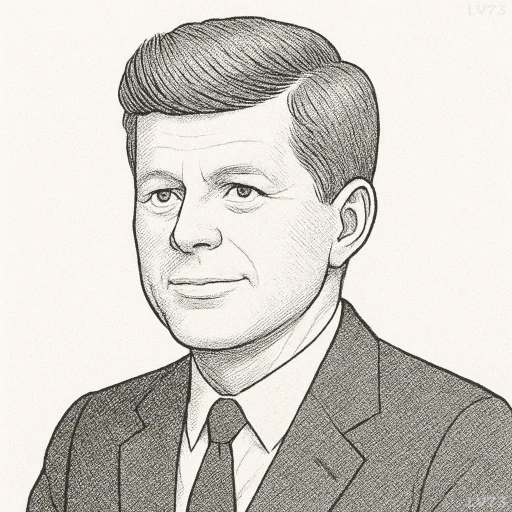“For in the final analysis, our most basic common link is that we all inhabit this small planet. We all breathe the same air. We all cherish our children’s futures. And we are all mortal.”

- May 29, 1917 – November 22, 1963
- American
- Politician
table of contents
Quote
“For in the final analysis, our most basic common link is that we all inhabit this small planet. We all breathe the same air. We all cherish our children’s futures. And we are all mortal.”
Explanation
In this statement, John F. Kennedy speaks to the universal human experience, emphasizing the shared humanity that connects all people, regardless of nationality, race, or ideology. The phrase “our most basic common link” highlights the fundamental truths that unite us: our shared home on Earth, the air we breathe, the universal love and concern for future generations, and the inevitable reality of mortality. Kennedy’s words urge listeners to recognize these shared experiences as a foundation for solidarity and cooperation in a world that can often seem divided by borders, conflicts, and differences.
The context of this quote is deeply tied to Kennedy’s vision of global cooperation during the Cold War. He often emphasized the importance of international diplomacy and the idea that, despite the tensions of the time, the survival and well-being of all people on Earth were interconnected. This perspective aligns with his famous 1961 Inaugural Address, where he called for a new era of peace and partnership among nations. By acknowledging our shared humanity, Kennedy hoped to inspire a sense of common purpose—one where people and nations work together not out of political convenience, but because of the deep, moral connection that binds all human beings.
Kennedy’s reflection on mortality also serves as a poignant reminder of the fragility of life and the impermanence of human existence. It challenges us to consider how we want to spend our time on this Earth and what legacy we will leave for future generations. In today’s world, where global challenges such as climate change, pandemics, and international conflict continue to test our collective resolve, Kennedy’s call to recognize our shared fate remains as relevant as ever. His words remind us that, regardless of our differences, we are all part of the same fragile world, and our actions and choices impact not just ourselves, but the entire planet and the generations that will follow.
Would you like to share your impressions or related stories about this quote in the comments section?


